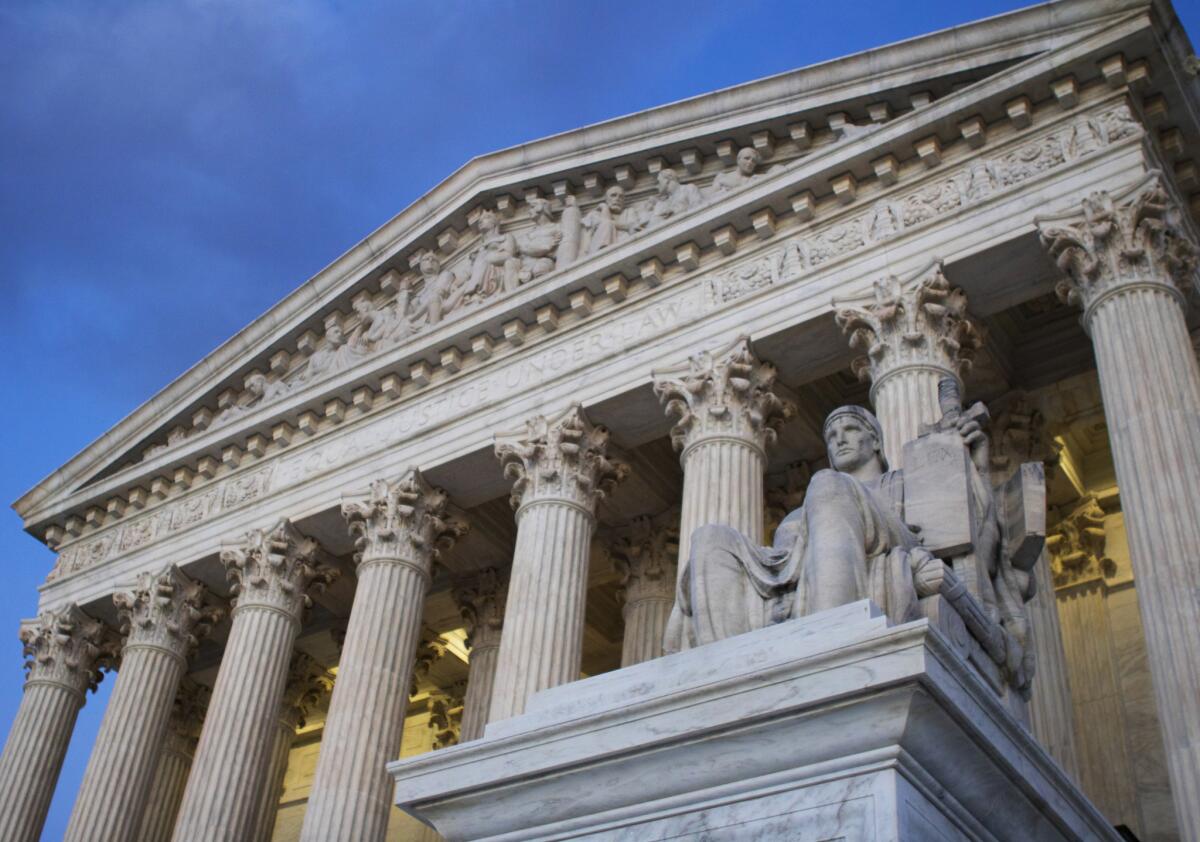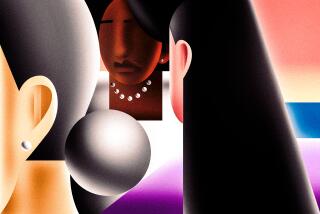Editorial: Let courts sniff out racial bias in the jury room

Anyone who has served on a jury — or seen the film “12 Angry Men” — knows that jurors often argue vociferously about the guilt or innocence of a defendant and sometimes change their minds. Encouraging jurors to be candid is one reason most states protect jurors from testifying in court later about their deliberations.
But last week, the Supreme Court was asked to rule that the Constitution requires the veil of secrecy to be pierced when there is evidence that a jury’s decision was warped by racial discrimination. The court should accept the invitation.
Miguel Pena-Rodriguez was convicted in Colorado of unlawful sexual contact with two teenage sisters who said he grabbed them in the bathroom at a racetrack. After the trial, two jurors reported that during deliberations a third juror, a former police officer, had made biased remarks about the defendant and an alibi witness because they were Latino. He was quoted as saying that the defendant must be guilty because “he’s Mexican and Mexican men take whatever they want.”
After the other jurors reported those remarks, Pena-Rodriguez’s lawyers sought a new trial but were barred by a rule — similar to those in most states and the federal courts — generally prohibiting a juror from testifying “as to any matter or statement occurring during the course of the jury’s deliberations.” (California rules allow some evidence about statements in the jury room that might have “influenced the verdict improperly.”)
During Tuesday’s oral argument, some justices seemed sympathetic to Pena-Rodriguez’s claim. But others worried that if the court allowed an inquiry into racial bias in jury deliberations, it would have to permit challenges based on expressions of other sorts of prejudice. “What about religious bias?” Chief Justice John G. Roberts Jr. asked.
It’s an important point. If a Jewish or Muslim defendant is convicted because a juror voted — or persuaded others to vote — based on hateful stereotypes, that too is a violation of the constitutional right to a fair trial. The court should hold that a defendant can challenge a conviction if there is evidence that any form of discrimination barred by law — racial, religious or gender — deprived him or her of a fair trial.
Allowing defendants to challenge convictions based on what was said during jury deliberations admittedly would make such appeals more likely. But jurisdictions that allow such inquiries in the case of possible racial bias don’t seem to have clogged the courts with them.
It’s also true that a decision in favor of Pena-Rodriguez wouldn’t prevent jurors in future cases from acting on unspoken prejudices; but at least they wouldn’t infect their fellow jurors with them.
As a general matter, the privacy of jury deliberations should be respected. (We would oppose, for example, recording or transcribing deliberations.) But when a defendant can offer evidence — as Pena-Rodriguez did — that blatant bigotry was factor in the verdict against him, courts shouldn’t turn a blind eye.
Follow the Opinion section on Twitter @latimesopinion and Facebook
More to Read
A cure for the common opinion
Get thought-provoking perspectives with our weekly newsletter.
You may occasionally receive promotional content from the Los Angeles Times.






